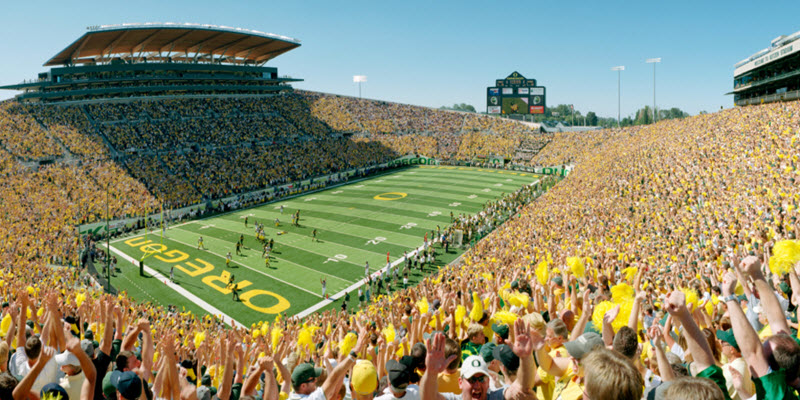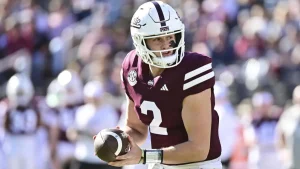
The Oregon Ducks football program made headlines across the sports world with a historic signing, securing a quarterback for a staggering $625.2 million. This unprecedented move not only shattered previous records but also sparked intense debate and speculation within the college football community.

The quarterback in question, whose identity remains undisclosed at this point, represents a paradigm shift in collegiate athletics. The hefty price tag attached to this signing reflects Oregon’s bold strategy to elevate their program to unprecedented heights. This move underscores the increasing commercialization and competitiveness within college sports, where top-tier programs vie for talent with eye-watering financial offers.
For the Oregon Ducks, traditionally a powerhouse in collegiate football, this signing signals their intent to dominate not just on the field but also in recruiting circles. It showcases their financial muscle and commitment to investing in top talent, potentially reshaping the landscape of college football recruiting for years to come.
Critics argue that such exorbitant spending could exacerbate existing inequalities within college sports, widening the gap between elite programs and smaller institutions. They raise concerns about the ethics of such high-stakes financial dealings in amateur athletics, where student-athletes are not compensated beyond scholarships and stipends.
On the other hand, supporters of the move point to the competitive nature of college athletics, where securing top talent is crucial for sustained success. They argue that this signing reflects the market value of exceptional athletes and the growing influence of big-money donors and corporate sponsorships in funding college sports programs.
Beyond the financial implications, this signing has broader implications for the sport’s future. It could potentially influence NCAA regulations regarding athlete compensation and endorsements, as debates continue over whether athletes should be able to profit from their image and likeness.
For the quarterback himself, this signing represents a life-changing opportunity. Beyond the financial windfall, it brings with it the pressure and expectations of leading a high-profile program to championships and national prominence. The spotlight will be intense, with fans, media, and critics closely scrutinizing every performance and decision.
In conclusion, the Oregon Ducks’ $625.2 million signing of a quarterback marks a watershed moment in college football. It underscores the evolving dynamics of amateur athletics, where financial investments increasingly shape the landscape of competition and recruitment. As the story unfolds, it will be fascinating to see how this bold move impacts not only Oregon’s football program but also the broader conversation surrounding ethics, equity, and the future of college sports.





